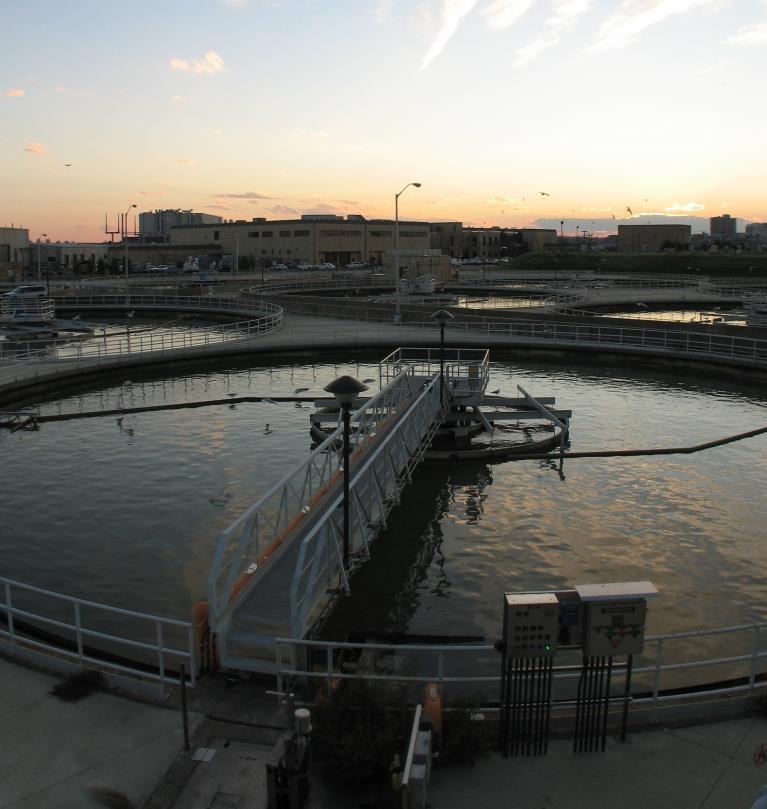
DC Water’s Blue Plains Advanced Wastewater Treatment Plant is the largest plant of its kind in the world. On an average day, the facility treats close to 300 million gallons of wastewater with a daily capacity of 384 million gallons and the ability to treat over 780 million gallons a day at peak flow. Wastewater flows in from the District of Columbia and from Montgomery and Prince George’s Counties in Maryland and Fairfax and Loudoun counties in Virginia.
The plant opened as a primary treatment facility in 1937. Since that time, new processes and technologies have been added to provide advanced wastewater treatment. The Blue Plains facility now uses both primary and secondary treatment as well as denitrification, multimedia filtration and chlorination/dechlorination during the treatment process.
At DC Water, we believe wastewater is more than just waste. During the treatment process, useful products like biosolids and energy are extracted to be reused. We land apply our biosolids across the region, recycling nitrogen and phosphorous back into local soils. The thermal hydrolysis process used in our digesters also generates electricity, enough to support a quarter of the power usage at Blue Plains. These efforts help to continue to improve our treatment process and remain a leader in sustainability for the future.
For more information on the Blue Plains Advanced Wastewater Treatment Plant, we encourage you to take an in-person or virtual tour.


